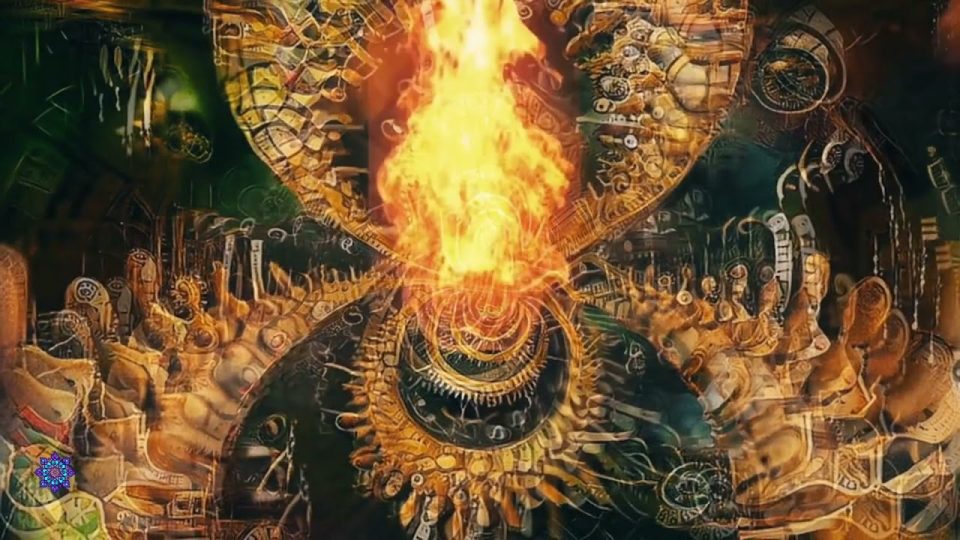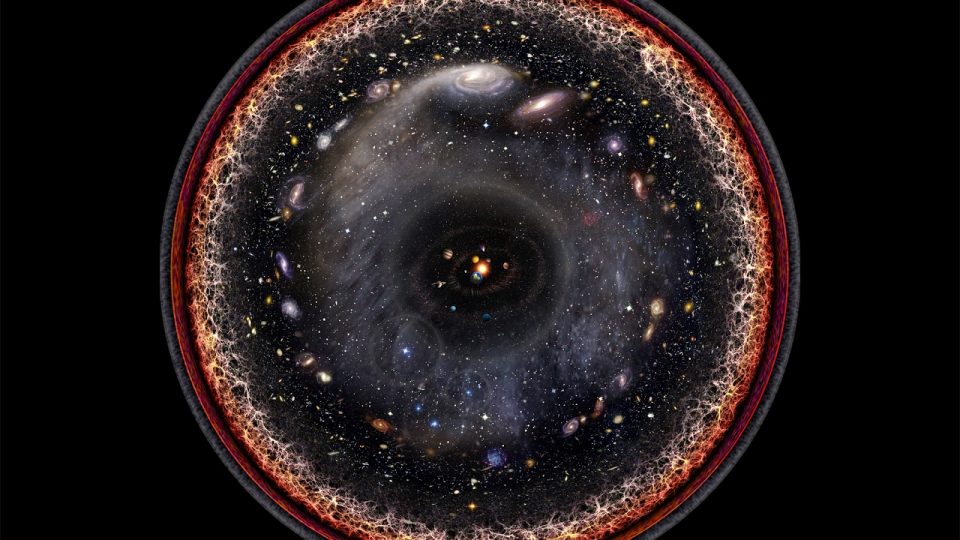The most famous phrase that comes to mind when it comes to chaos and order; It is the phrase “chaos brings order”. Is this sentence talking about a cosmic law or is this sentence just a judgment on human life and politics?
It is easier to say that chaos brings order in human life than to the cosmos. Because man is a conscious being and he reacts to situations subconsciously. When a political system, a society, a community goes into chaos, people are disturbed by this “disordered” situation. Because disorder means uncertainty. Uncertainty, on the other hand, triggers deep ancient fears and people want to get rid of this disordered and uncertain environment as soon as possible. In fact, when you show death, which by ancient fear I mean actually a learned value system based on it, it will settle for something that it wouldn’t have consented to before when everything was fine, even malaria. He prefers less bad to bad. All these series of choices transform the systems whose fate is decided by the people into a more stable, more stable, more predictable and finally a more ordered system.
This evolution and transformation, perhaps due to some events triggered by itself and the universe, whose origin is chaos, and perhaps the accumulation of human passions in an “individual” sense, in other words, his “defeat”, turns into chaos and this cause-effect wheel keeps turning.
In the succession of chaos and order among humans, the issue of which human behaviors bring chaos and which order may offer lessons and principles worth examining.
However, since our subject in this article is not the manifestations of chaos and order in human societies, but the manifestations in the universe, let’s leave that part for another study and pay attention to the chaos and order in the universe.
While examining the subject of chaos and order in terms of human societies, we have considered the “conscious” reactions of people to situations as the motives and causes of chaos and order. So, how should we ground the chaos and order for the material universe, which we think does not give conscious reactions to things and situations? Does chaos bring order in new situations created by the reactions of substances that have no consciousness?
If we look at the belief of ancient societies, first of all, there is chaos. Chaos has evolved into order by God or Gods. Here, chaos has turned into order one after another. However, if we think that Gods also have a consciousness, we cannot make inferences about the chaos and order situations of the substances that we think do not have consciousness and are not directed and managed by a God who has a consciousness. Because here, too, order was established by the will of the Gods after the ancient chaos, just as we have mentioned for human societies. So, gods, like humans, are in favor of “order”. People were looking for order for a fundamentally fear-based reason. So do the gods fear too? Let’s leave this issue aside for now.
While examining chaos and order, I think we should first evaluate whether there is an objective criterion for chaos and order situations. Are chaos and order relative or absolute?
In my opinion, since chaos and order are ultimately a “definition” based on human observation and perception, it has to be relative, as we can say for everything human-related. We cannot reach an objective point about chaos and order when we start to ask according to whom and according to what. Nice… If you ask me, even the things that people define objectively, I call it relative, because it’s related to people. The statement and claim of a person, who cannot prove the reality of anything he sees, hears, or feels, is nothing but pretentiousness.
When chaos and order are relative, let’s eliminate the “for whom” part and continue with the “for what” part. Where do we look for chaos or order? Is what we’re looking at a part or a whole? And if what we were looking at was a part, is that part affecting the whole, or is it a part affected by the whole? Can we look at the part and infer from its chaos and order states about the chaos or order state of the whole? Perhaps a more critical question is, is the whole that we look at and think we see, essentially something that can be disintegrated? Because, in fact, we do not have much competence in terms of what is a part and what is a whole, other than ranting. Our observation and examination of a part of something does not guarantee that that part can be a separable part from the whole. We cannot answer the question of what would be the fate of the whole if there were no parts, without knowing the future. And finally, we do not have the ability to “destroy” things. We can only transform the form of things and never destroy that thing. As such, we cannot determine whether the whole can exist without the part we define as a thing.
Suppose we are looking at an anthill and an ant community. According to one of the observers, ants wandering around can be found in extraordinary disorder. This judgment of his is only a product of ignorance in terms of modern science. Science knows that evolution has imposed an order on the ant swarm so that they can continue to exist, and that that swarm has brought its existence to this day only with that order / set of rules. In this case, if a person who observes and judges by looking at the ant swarm has enough information about ants, he sees order, not chaos. We’ve just eliminated this, leaving aside the “for whom” part of relativity. Well, if we look at the lower and upper systems of the ant swarm, what will we see? Is the ant swarm a “whole” compared to its own subsystems? Likewise, if we look at their own upper systems, is the ant swarm a piece? In all these definitions of partitioning and fragmentation, who influences what and how?
The butterfly effect is an important element of the definitions of chaos and order. A butterfly flapping its wings here and now can cause a storm elsewhere in the world. This data actually and basically refers to our weaknesses in our measurement and evaluation ability, and tells how events that will occur anywhere in the world or the universe are related to other variables that seem irrelevant to us, and how situations are unpredictable in terms of our level of knowledge and measuring capacity.
In fact, with this judgment, it is the same as an ignorant man looking at a flock of ants and not seeing any order in the ant movements. Because this claim, the butterfly effect claim, also implies that if all of these variables are known, events that can happen anywhere in the universe at any time can also be known. If we cannot be like a “devil” (!) who can know all the properties of all things in any way, we will never be able to get out of the state of the ignorant man watching the ants, and we will observe a perpetual chaos, not order.
If the “uncertainty” principles that we encounter within the scope of quantum physics are the result of such ignorance and our measurement defect, we accept that the subatomic universe can also carry order, even though it may seem like chaos.
The problem already starts here. The most important criticism directed at those who say that there is order in the universe is the extraordinarily logical inference, “How much of the universe can you see that you can claim that there is order in the whole (that is, in the whole)”. However, the same inference is also valid for those who say “there is no order in the universe, there is chaos”. The question is what is part and what is the whole, and first of all whether the whole is separable into parts, and if so, the interaction between part and whole.
As in the case of the butterfly effect, if anyone observing ants asks whether a step taken by an ant here and now affects a celestial event at the other end of the universe, similar or even synonymous criticisms can be made for all those who respond positively or negatively.
The reason for all this is that we are ranting about a whole that we claim to have chaos or order in, and that exists only “according to us”, without relying on any competence. Because we are not in a position to know whether what we call the whole is also a part of another system, if it did exist, whether that great system is divisible or not, and finally whether there is an interaction between the part and the whole.
Ali Aksoy – 24 August 2020
(Translated with google translate)
For the original article, see:











